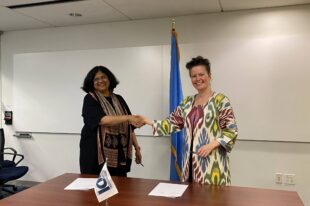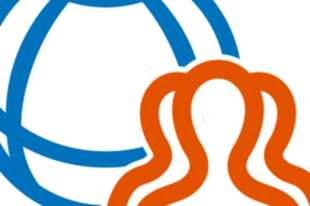Unveiling Challenges: Auditing Small Islands in the Indonesian Archipelago
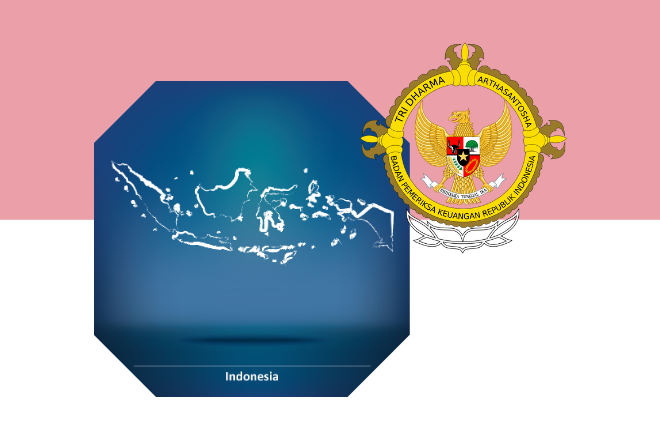
by: Sherlita Nurosidah (SAI of Indonesia)
Introduction
Indonesia is an archipelagic country with more than seventeen thousand islands by 2022 as stated in The Minister of Home Affairs Decree Number 100.1.1-6117 Year 2022 (Minister of Home Affairs, 2022). Among those islands, 13,466 are small islands and only 146 islands are inhabited (Finaka, Agam, and Putra, 2018). Embarking on the audit journey in the scattered archipelago of Indonesia presents auditors with a distinctive set of challenges, particularly when scrutinizing the financial landscapes of small islands. As the largest archipelagic nation in the world, with a length of approximately one-eighth of the Earth’s circumference, Indonesia’s smaller islands boast rich cultural diversity, economic intricacies, and unique environmental contexts. This article delves into the complexities auditors face when undertaking audit tasks on these diminutive, yet economically significant islands. From grappling with limited infrastructure and navigating the geographical remoteness to understanding the economic intricacies of industries that shape these islands, auditors are confronted with a tapestry of challenges that demand a tailored and astute auditing approach. This writing explores the nuanced challenges inherent in auditing small islands within the Indonesian context, shedding light on the multifaceted considerations auditors must ensure the accuracy, reliability, and compliance of financial reporting in these idyllic yet intricate settings.
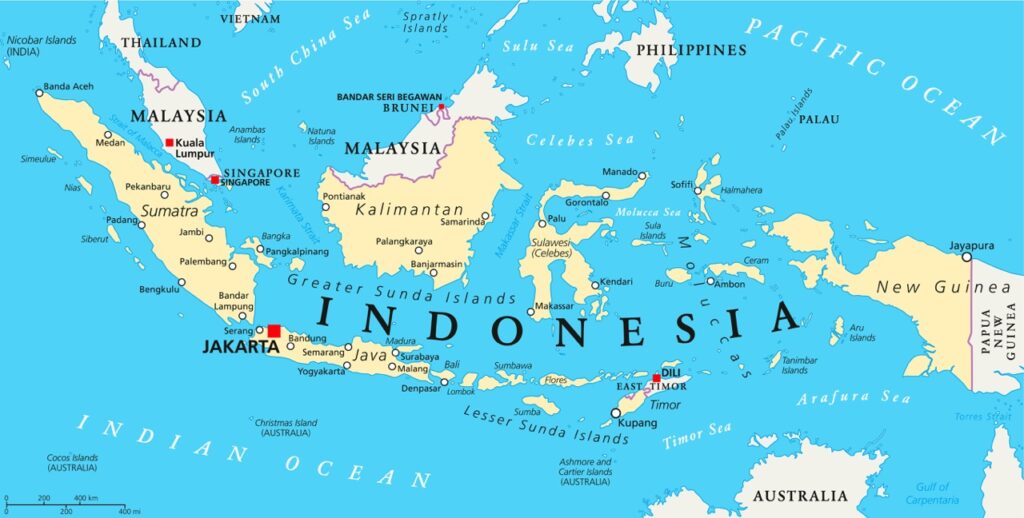
Navigating Barriers in Auditing Small Islands: An Overview
Auditing in small islands in Indonesia poses specific challenges that auditors must navigate. Auditors encounter challenges related to limited infrastructure, geographical isolation, economic dependency on certain industries, limited professional workforce, unique environmental risks, diverse regulatory environment, and cultural sensitivity. Small islands in Indonesia often need more infrastructure, encompassing deficiencies in transportation, communication, and technological facilities. The absence of robust infrastructure hampers auditors’ ability to efficiently conduct on-site audits, access essential information, and communicate effectively with local stakeholders.
The geographical remoteness of small islands contributes to increased travel costs, extended audit timelines, and logistical challenges. Auditors must contend with accessibility issues, making the coordination of audit tasks and the collection of necessary data a more intricate process. Many small islands in Indonesia economically rely on particular industries, such as tourism, agriculture, or fisheries. Economic volatility in these sectors directly influences the financial stability of entities on these islands, necessitating auditors to assess and respond to industry-specific risks carefully. A need for more skilled professionals on small islands poses a challenge for auditors in seeking local expertise. The need for more qualified personnel may impede the audit process, requiring auditors to bridge the gap by providing training or seeking assistance from external sources. Differences in regulatory frameworks across Indonesia’s islands present auditors with the challenge of navigating varying reporting practices. Adaptability to diverse regulatory environments is essential to ensure compliance with auditing standards and regulations.
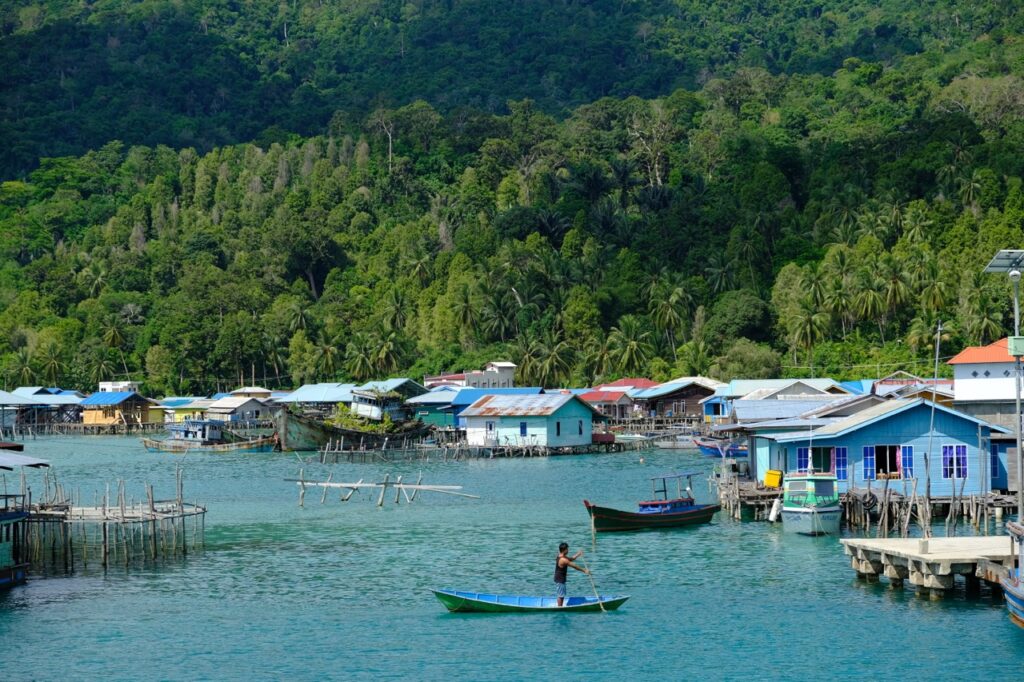
Best Practices for Successful Audit in Small Islands
Conducting audits on small islands in Indonesia requires a nuanced approach, considering the unique challenges and opportunities of their distinct economic, cultural, and environmental contexts. Here are some best practices for auditing in small islands from SAI Indonesia’s experiences, and research, as follows:
Understanding Local Context
SAI Indonesia must assess the local and national government’s annual financial report every year. Before the audit, auditors should invest time in understanding the local context, including the economic drivers, cultural nuances, and environmental factors specific to the small island. This understanding includes the audit strategy and risk assessment, called interim audit. It is the first of three stages before the local government delivers its report to be fully audited. Local government accountability is essential to identify and allocate resources better (Nurosidah, Khusaini and Prasetyia 2023). Several purposes of such approach are to gain a deeper understanding of an entity’s internal system effectiveness, evaluate the conformity to the Law, and monitor their progress on audit findings’ follow-up actions. Overall, the primary aim of the interim audit is indivisible to the overall audit. Developing audit plans shall be tailored to the specific characteristics of the small island. Besides, factors such as limited infrastructure, economic dependencies, and unique industry landscapes should also be taken into consideration when designing audit procedures.
Engaging with the Expert
Collaborating with local professionals who deeply understand the island’s economy, culture, and regulatory environment could gain valuable insight. Local expertise can provide valuable insights and enhance the effectiveness of the audit process. SAI Indonesia issued BPK Secretary General Decree Number 3 2022 on State Financial Audit by Auditor and Expert outside SAI Indonesia and Public Accountant according to the Law, allowing the SAI to choose any expert needed during the audit. The chosen expert shall adhere to the requirements posted by the SAI and comply with the quality management of the audit.
Utilizing Technology
Leveraging technology to overcome geographical isolation and limited infrastructure challenges has long been considered a good idea. Remote audit tools, electronic document exchange, and data analytics can streamline the audit process and reduce the need for extensive on-site presence. Since 2014, SAI Indonesia has been using e-audit applications to bring the institution into a data-driven organization (Bakri and Tirta, 2023). Experiencing the challenges brought by the COVID-19 pandemic has brought a fresher perspective on strengthening technology applications to be cutting edge. By tremendous and persistent efforts to become more effective, and efficient, and serve the nation better, in 2021, SAI Indonesia introduced the use of BPK Big Data Analytics or BIDICS. BIDICS is a computerized data processing application which has the ability to collect, process, and perform large amounts of data analysis.
Another application that has been quite helpful in delivering high-quality audits by overcoming boundaries in magnitude is SIAP Connect. SIAP Connect is an improvement of SIAP, introduced six years ago. It is an information system that accelerates communication between auditor and auditee, especially during field audits. The auditee can check the audit schedule or any important dates, hand over documents using the platform without worrying about the possibility of lost goods, oversee any information from the team in advance, send or monitor invitations, and any other procedures allowed by law. The presence of SIAP Connect heightens work efficiency. SAI Indonesia also assures the privacy and validity of the data. To do so, entering the application can only be done by the person held accountable for the document.
Emergence of Risk-Based Audits
A high-quality audit should have a thorough risk assessment that considers the economic dependencies of the island. Understanding the key industries and their susceptibility to external factors is necessary, such as environmental risks or fluctuations in global markets. SAI Indonesia continuously raises risk-based audit (RBA) implementation in Indonesia, focusing on accessing and underlying high-risk accounts in the government’s financial report. The approach is highly valuable to gain a broader audit scope and release constraints of narrowed samples. Six aspects are considered as part of the RBA approach to determine the degree of materiality of the report, as follows:
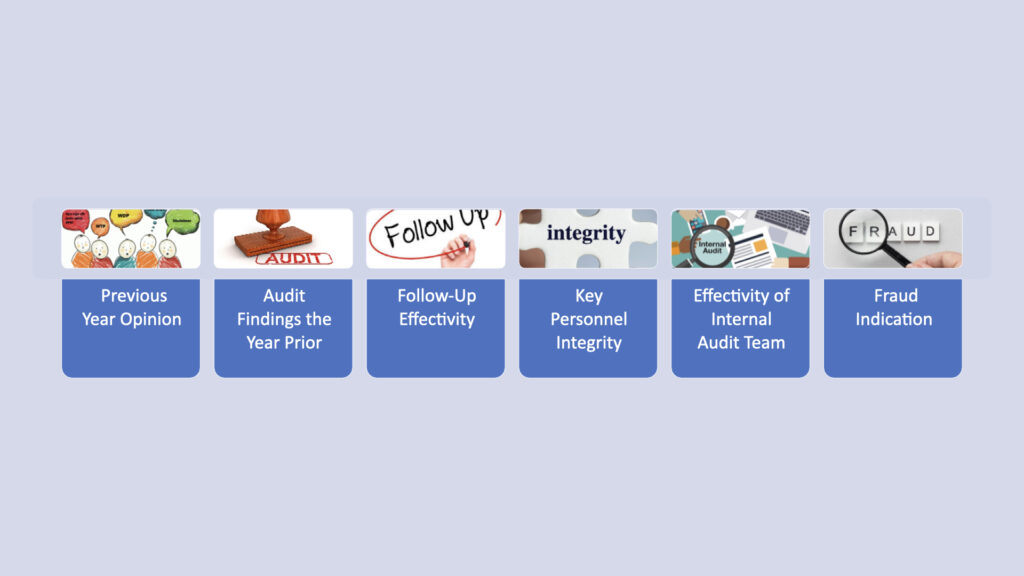
The government should act upon not only gaining unqualified opinions on their annual financial report but also utilizing their spending economically, effectively, and efficiently, as well as actively thinking about its usefulness.
Audit Transparency
Working with local stakeholders to promote financial literacy and understanding of the audit process increases trust. The method can contribute to a more transparent financial reporting environment and facilitate cooperation during audits. Transparency is undoubtedly a paramount component of this matter of small island challenge. SAI Indonesia has several tools to guarantee that the audit process is free from fault. These tools can inform SAI Indonesia of any misconduct. For example, SAI Indonesia has an external accusation report (LAPOR), which can be accessed at https://www.lapor.go.id, and a whistleblowing system accessible at https://wbs.bpk.go.id.
Continuous Training and Development
Providing continuous training and development opportunities for audit teams is key to enhancing their skills and keeping them abreast of the latest auditing standards and technologies. Corporate University BPK e-Learning can be accessed through https://elearning-sl.bpk.go.id. This learning tool allows SAI of Indonesia employees to enroll in online training by self-learning. It opens the opportunity to learn anything that interests them during the year. The certificate will be uploaded automatically upon course completion to SAI of Indonesia’s human resource platform (SISDM). On the other hand, various in-person educations are held in five different cities, which spread to four islands in Indonesia, e.g. Medan, Jakarta, Yogyakarta, Denpasar, and Gowa.
Regular Regulatory Updates
Staying informed about regulatory changes at both the national and local levels generates a stronger foundation for audit performance. Regularly updating audit procedures to align with any accounting and auditing standards amendments that may impact the audit engagements on small islands. SAI Indonesia’s Legal Documentation and Information Network (JDIH) provides the public with recent tools on local and national regulations and their changes throughout the years. Recently, in 2023, JDIH of SAI Indonesia was awarded as the first winner in legal documentation and information network. The platform is quite accessible for the public to stay informed, e.g. the website https://peraturan.bpk.go.id, mobile apps, and a smart box called JDIH corner.
Conclusion
Auditing in small islands in Indonesia demands a comprehensive and adaptable approach. Auditors must navigate challenges ranging from limited infrastructure and geographical isolation to economic dependencies and unique environmental risks. By acknowledging these challenges and tailoring their audit strategies to the specific contexts of small islands, auditors can contribute to the reliability and transparency of financial reporting in these intricate and economically significant settings.

